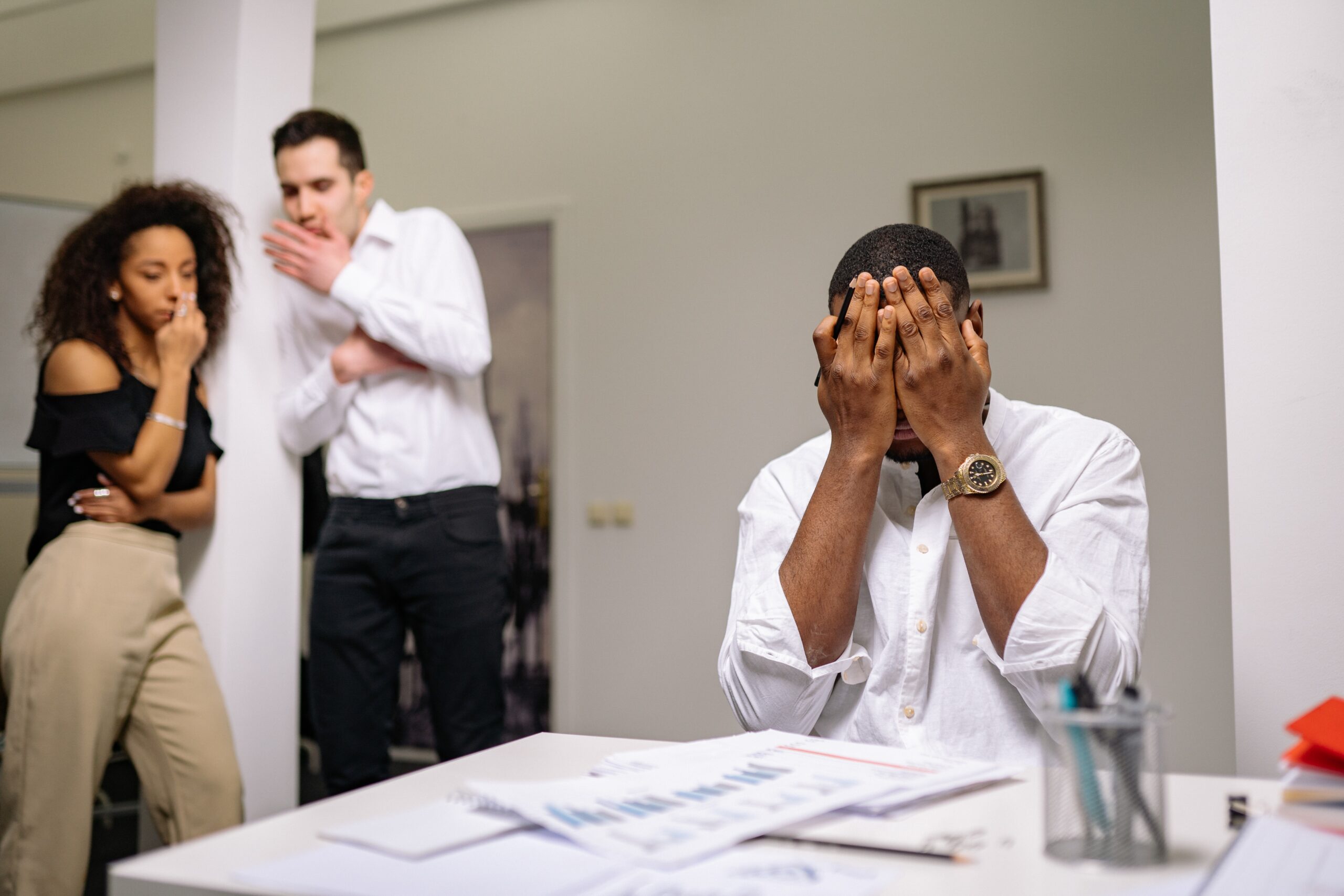
This October, the National ADD or ADHD Awareness Month, let’s talk about adult ADHD. Did you know that many adults go undiagnosed with this disorder? For decades, people believed that only children have ADHD, and typically outgrow it after adolescence. Unfortunately, this is not the case.
Between 2.5 to 4.4% percent of adults have attention deficit disorder, and it’s highly possible that the numbers are higher, with many left undetected. What accounts for this obscurity? For one, the diagnostic criteria for ADHD was designed for children.
Symptoms like “running around” or “squirming” often do not apply to adults who are settled down, holding a job, or raising children. And when they do seek help, they’re often misdiagnosed for anxiety or other kinds of mood disorders, because the symptoms for ADHD are similar.
Many go through life without knowing they have it. But ADHD, when severe and left undetected, can interfere with daily functioning, and also harm relationships. The good news? ADHD can be overcome, with many going on to achieve great things in life. Do you have ADHD, or suspect someone you love has it? Here are 10 signs of ADHD in adults you should know about.

1. Restlessness
In children, a key ADHD symptom is hyperactivity or being overly energetic. In adults, this is less prominent. Adults with ADHD feel more fidgety and restless than hyperactive, like their insides are driven by a motor, according to CHADD (Children and Adults with Attention-Deficit Hyperactivity Disorder).
No running or jumping around—these are symptoms associated with ADHD in children. Instead, the prevailing feelings are that of restlessness, agitation, and racing thoughts—it’s impossible to relax.
2. Impulsive Shopping
When you have ADHD, the expenses stack up pretty fast. Impulsiveness is one of the major symptoms of ADHD, and is common in women, but doesn’t exclude men entirely.
Online shopping has been a complete disaster for Zoe Kessler, author of the book ADHD According to Zoe. Featured by Glamour, Zoe tells it like it is. Referring to crowded stores filled with colorful items, she says “forget it—it’s like being in a candy store because there’s too much to choose from.” When she’s not able to keep herself in check, she would buy them all.
People with ADHD are easily overstimulated. They hyper-fixate on an item (or items) and decide to say “mine”, even before they’ve given it a thought. Impulsive shopping evolves to hoarding, as they tend to forget they even bought the items.
Doctors attribute this behavior to dopamine. Adults with ADHD are less sensitive to dopamine, so they tend to do something excessive to boost its production.

3. Racing Thoughts
Missed appointments, piles of unfinished tasks? These are very common signs of ADHD. And it’s not because the person is being irresponsible or inconsiderate.
For an adult with ADHD, the mind jumps from one thought to the next. You’d be in a car, preparing for an important meeting for work, when you see a billboard of a women’s fashion brand, and suddenly remember your laundry – you haven’t picked it up. You think, oh you need to text the laundry lady whose name is Maria, and oh – my friend Maria’s celebrating her birthday next week, I should buy a gift for her! Before you know it, you’ve asked the taxi to bring you to the mall, instead of the office.
Some with severe symptoms will get so lost in their thoughts, that they forget appointments completely. As Dr. Lidia Zylowska, a psychiatrist at the University of Minnesota Medical School and author of “The Mindfulness Prescription for Adult ADHD”, markedly pointed out, “adults with the disorder struggle with so-called executive function skills—planning, organizing, time management – basically, skills needed for adulting.”
4. Chronic Disorganization
ADHD is the root cause of messiness and extreme disorganization. You have lost keys, credit cards, your wallet, and oh, that piece of paper with that important contact detail scrawled on it. Life can be a whirlwind of clutter for you.
Judy Katz is a pediatric occupational therapist in Chicago, who herself was diagnosed with ADHD. She cites disorganization as major symptom and how it affects not only the person with ADHD, but the people around him or her as well.
“Taking care of yourself is hard enough,” says Katz. “ But if you’re a caretaker or parent, keeping up with laundry, lunches, carpools, pod days and times, and doctor appointments can be a huge challenge.” (story and interview from Pure Wow.)
5. Chronic Procrastination
“I’ll do it later.”
Everyone procrastinates from time to time. That’s normal. But with adults with ADHD, this leans to the extreme. They are champion procrastinators. They’d put off one task after another, again and again, never getting to later.

6. Poor Time Management
Increasingly, as the symptoms grow severe, an adult with ADHD will have trouble setting and recognizing priorities. For people without ADHD, jotting down and fulfilling tasks in order of priority seems common sense.
We’ve had those instances wherein we’re working on something, only to get an email from a colleague asking for a certain document or information, but states clearly that it’s not urgent. We get interrupted all the time, and that’s normal.
For adults with ADHD, they won’t get the drift. Their attention diverted, they would fixate on the new email that just arrived, and would probably not remember what they were working on previously.
They have trouble focusing on the future and the past. Their minds naturally gravitate towards the “now” or the present. Time management is extremely difficult.

7. Low Self-Esteem
With their lives in chaos, and their loved ones disappointed with them, their undiagnosed ADHD often lead to negative self-image.
They tend to blame themselves for all their troubles, seeing them as personal failures on underachievement.
Word of encouragement, a support group, relaxation outlets, and therapy can help adults with ADHD in this department.
8. Increased Anxiety
Adults with ADHD suffer more anxiety than others. The anxiety stems from many of their symptoms – low attention span, forgetfulness, trouble going to work on time, unable to finish deadlines. It’s like walking on a tightrope every day. Or having an internal motor that won’t shut-off. And when things start to fall apart, they feel they have nothing to blame but themselves.
Also, adults with ADHD tend to replay worrisome events in their mind, so they are often filled with negative emotions – frustration, guilt, and shame, among others.

9. Difficulty Holding a Job
With all of the symptoms listed above, it’s no surprise adults with ADHD have trouble holding jobs. People with ADHD often miss work, are more likely to get fired, and to change jobs frequently.
But this doesn’t diminish their skills and their talents. With a proper diagnosis, treatment, and medication, many are able to achieve success. Michael Phelps, Richard Branson, and Jamie Oliver are some of the world’s most successful adults with ADHD.
10. Difficulty Keeping Relationships
Adults with ADHD have trouble maintaining professional, personal, and romantic relationships. It’s tough to love someone who didn’t show up to dinner, forgot it’s your anniversary for the second time in a row, or who couldn’t pay the rent. Again, this goes for the undiagnosed adults. Their significant others do not know better.
On the flip side, adults with ADHD drop partners as they would jobs. They get bored easily, and their attention for a loved one easily wither away.
“Being easily distracted or inattentive—symptoms of ADHD—can also sabotage existing relationships with family, friends, and significant others who view their loved one’s behavior as self-centered,” Healthline wrote in an article about ADHD.

After Diagnosis, What Happens Next?
A diagnosis late in life can either come as a shock or a relief. It may make one feel angry or sad that they weren’t diagnosed earlier. Or a sense of relief from finally understanding why.
Diagnosed with ADHD as an adult? Here are the next steps.
1. Accept, let go of self-blame and hate. Try to move forward, and ask yourself and your doctor, what’s next?
2. Work with your psychologist, psychiatrist, or neurologist on how to best manage your symptoms. This would be a combination of medication and therapy.
3. Tell your loved ones. They will accept you.
4. You may want to work with an ADHD Coach to help you get more organized and productive.
5. Explore relaxation techniques, such as yoga and tai-chi
6. Find an ADHD support group.
7. Follow a healthy lifestyle.
8. Read up on your condition. There are lots of helpful resources, such as the ADDitude Magazine.
The Bottom Line From Naturally-Immune
The world is complex. Adulting is hard. But very much so for people with ADHD. If you’re struggling with ADHD, know that you can manage your symptoms, function normally, and go on to achieve many amazing things.
Tags
References:
https://www.verywellmind.com/adhd-and-chronic-procrastination-20379
https://www.additudemag.com/adhd-at-work-time-wasters-and-productivity-killers/
https://www.uopeople.edu/blog/8-of-the-worlds-most-successful-people-with-adhd/
https://www.purewow.com/wellness/signs-of-adhd-in-adults
https://www.health.com/condition/adhd/15-signs-you-may-have-adult-adhd
https://www.healthline.com/health/adhd/adult-adhd#hyperfocus
https://www.additudemag.com/statistics-of-adhd/
https://www.glamour.com/story/the-overwhelming-aggravation-of-shopping-with-adhd
https://www.additudemag.com/slideshows/what-undiagnosed-adhd-feels-like/



0 Comments